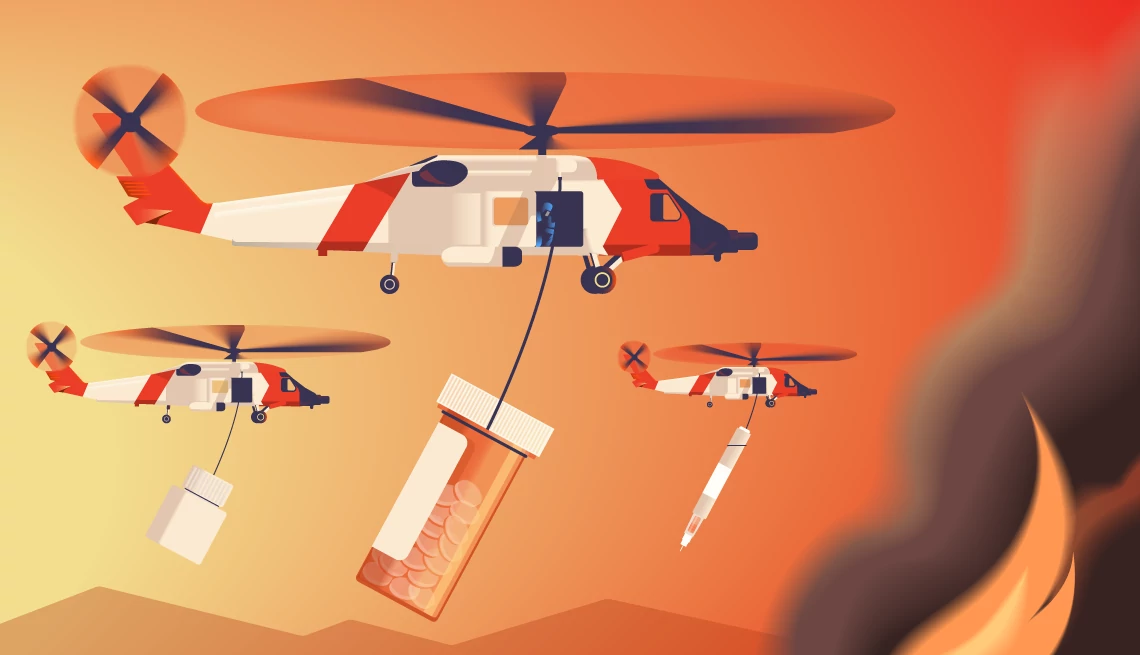AARP Hearing Center


Wildfires, tornados, hurricanes, floods and other natural disasters displace millions of Americans each year, and in many instances, people are forced to flee quickly and often without basic necessities, including prescription medications.
For the 9 in 10 older Americans who take a prescription drug, not having access to essential pills and injectables can have dire health consequences. Thankfully, “there are a number of things you can do to get your medications replaced,” when disaster strikes, says Danielle DiBari, chief pharmacy officer at NYC Health + Hospitals. Here are some steps you can take.
If you use a local pharmacy: Contact your pharmacy as soon as possible and ask them to transfer your prescription to another pharmacy in your current location.
If your pharmacy is closed because of the emergency, your insurance provider can help you locate an in-network pharmacy in your area, DiBari says. The website RxOpen also tracks pharmacies that are open during emergencies.
The new pharmacy should be able to verify your medications by checking with your insurance company. Another option is to call your health care provider and see if they can call in your prescriptions to a new pharmacy in your area.
If you use a chain pharmacy: “You can actually go to any other location of that chain pharmacy, and they can look up your prescription drug history, find what you're on and fill it in an emergency situation,” says Sarah Stephens, pharmacy initiatives manager at Cedars-Sinai.






































































More From AARP
Taking Multiple Meds? Why You May Want to Cut Back
A stuffed pill box could be harmful instead of helpful
Side Effects of Weight Loss Medications
Take a closer look at some of the more common (and rare) side effects people can experience
Try These Tips for Living a Healthier Life
Small changes can add up to big mental and physical results